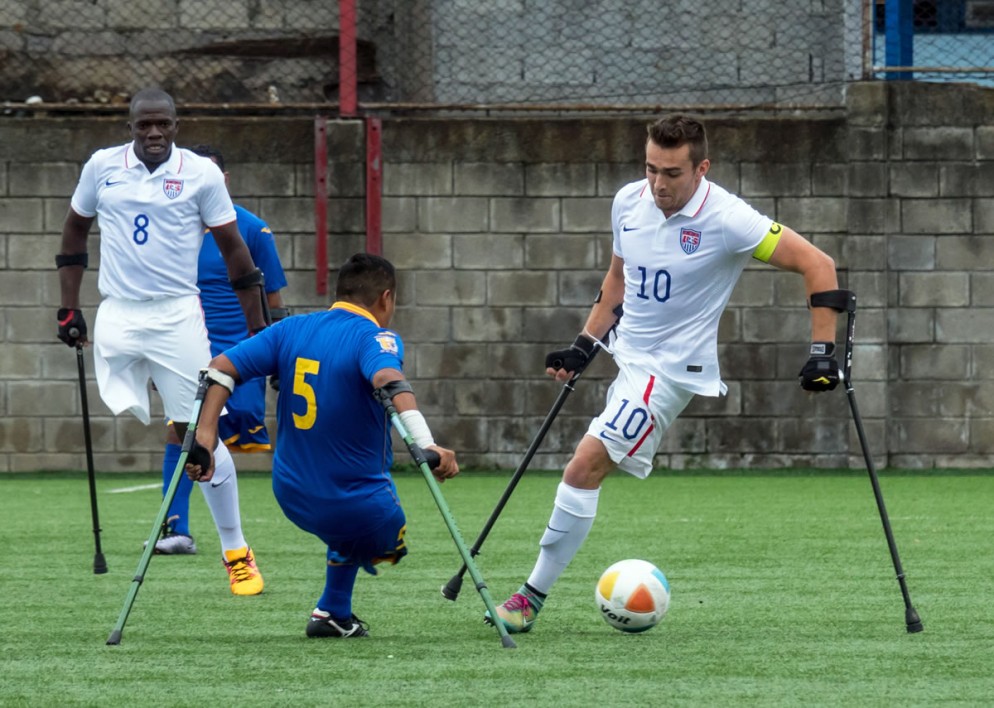Once again, Colorado College sophomore Nicolai Calabria played a part in making U.S. sports history. And the education major is only getting started.
In August, the Massachusetts native led Team USA to its first medal at the 2016 Amputee Soccer Copa America, recording a team-high five goals and four assists. The Americans lost to eventual champion Mexico in the semifinals before routing host Costa Rica 6-0 in the bronze-medal game.
That bronze followed up Team USA’s best showing when it reached the 2014 quarterfinals with Calabria as co-captain. “We were elated to medal,” he says. “Next year we’ll be back with a vengeance to take home gold.” The 2017 tournament will be in Southern California in the last week of July.
Calabria’s determination has characterized a life already full of accomplishments including making the national team at age 17.
At 13, he was the first to summit Mount Kilimanjaro (19,341 feet) on crutches and raised more than $100,000 for charity doing so. He is the subject of an award-winning short documentary “Nico’s Challenge,” and has appeared on the “Ellen DeGeneres Show,” the “CBS Evening News,” “CNN News Room,” and on NPR’s “All Things Considered.”
He helps his team off the field through publicity work and fundraising because he loves amputee soccer.
Since it is not recognized as a Paralympic sport, internationally or domestically, there is no major funding available; a distinct disadvantage compared to other nations that have year-round youth and adult developmental programs.
“Perhaps what is most challenging about playing on the U.S. team is that oftentimes many of our players, or members of the delegation, are unable to travel internationally or domestically because of work conflicts and the amount of personal expenses associated with traveling internationally,” he says.
“Unfortunately the team rarely holds training camps, and when we do, they are held in any place where we can save the most money,” he says, adding that he has reached out to CC about hosting one next summer.
Amputee soccer was organized in 1984. It is now played in more than 30 countries. Teams of seven include a goalie with one arm and six field players with one leg using forearm crutches. The sport is often described as a cross between “the beautiful game” and a demolition derby.
Calabria, 22, who was born without a right leg or hip, will work as an advocate long after he’s done playing.
“I am going to work for my lifetime to make amputee soccer a Paralympic sport,” Calabria says. “It deserves to be one, and it would increase funding for the sport across the globe. Soccer has been my lifelong passion, and I will do anything I can to help it gain Paralympic status.”
This article originally appeared on Sept. 1 in The (Colorado Springs) Gazette. Reprinted with permission.
